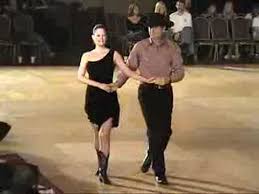 Ki teitzei lamilkhamah al oyvekha – When you go out in battle against your enemies, and Hashem puts them in your hands, and you capture their captivity…” Capture the Flag! On the surface, this parshah begins by talking about laws of battle. But on a deeper level, what are your enemies? They’re the intense experiences that we tend to get caught in. You get angry, and you project the blame on something out there, struggling, maybe yelling, or judging, all of which are all about trying to force reality into conforming to your will, or maybe punishing it for not conforming. Or, you have a wonderful experience, and you get disappointed or even depressed when it’s over, because you’re psychologically clinging to the past.
But this verse is saying, untano Hashem Elohekha b’yadekha – and Hashem puts them in your hands. In other words, you can have victory over your enemies, but it doesn’t come through fighting or struggling. Your victory is put right in your hand, if you open your hand. Meaning, don’t struggle with your experiences. Fully let them be as they are, without clinging to good things or blaming anyone for bad things, and then let them go when they want to go. It’s really effortless, because it’s not about controlling things, but about relaxing the impulse to control things. That’s why it says, shavita shivyo – you capture their captivity. Meaning, our experiences are constantly trying to capture us, to draw us in to their dream and sometimes nightmare, but if you remember: simply be with this moment as it is, and let it go when it goes, then you easily “capture its captivity” – you can control your impulse to control, and be victorious over your own mind. This is also totally relevant in dealing with other people that may be possessed by collective ego, such as what we are seeing today with neo-nazis and so on. When you see others that are hateful or angry or demeaning, and you get dragged into their drama, judging and hating them back, you only reinforce the context that creates people like that. So even as you stand up for justice, even as you say "no" to ideologies of hate and the people who promote them, remember that you have a tremendous power to make a difference in the world on a very deep level if you can stay conscious and not get dragged into the drama. Because ultimately, it’s only when there’s a profound change in consciousness, only when enough people learn to see through their own egos, only then will the plug get pulled on the destructive forms of collective ego that we see today. And to help make that change in consciousness, there’s ultimately only one way, and that’s to see through your own ego. You’re never going to get someone else to see through their ego by judging and yelling at them, right? You can only see through your own, and in so doing, create a ripple of awakening that will join with other ripples of awakening, until enough people wake up. It doesn’t have to be everyone, it just has to be enough to tip the balance. So on this Shabbat Ki Teitzei, the Sabbath of Going Out, let’s remember that to engage the enemy of resistance, of ego, don’t “go out” into battle, because that only creates more ego, more resistance. Instead, know that untano Hashem Elohekha b’yadekha – Victory is being put right in your hand, if only you open your hand, if you open yourself to the experience of this moment. Then you can "go out" and do battle, but it's not a battle of resistance and struggle, it's a battle of overcoming darkness with light, of overcoming resistance with love. Good Shabbos!
2 Comments

"Shoftim v’shotrim titein l’kha b’khol sh’arekha –
"Judges and officers you shall place in your gates..."
Parshat Shoftim begins, Shoftim v’shotrim titein l’kha b’khol sh’arekha- judges and officers you shall place in your gates. So, what are shoftim, the judges? They’re the ones who are supposed to discern the truth of something and then make a decision based on that truth. And what are shotrim, the officers? They’re the ones that inforce the decisions of the shoftim. These two functions in society also represent two functions on the spiritual path as well.
The job of the mind is to help us navigate through time and make decisions. For this reason, the mind is constantly judging everything, preferring this over that, pronouncing things as bad and good and so on. Of course, this is necessary, but the side effect is that you can become entirely focused on the incompleteness of everything, and that creates tension and stress. And, the more you experience the incompleteness of things, the more you experience yourself as incomplete, as never quite adequate, because on the level of form, that’s correct. Nothing is ever complete; everything is in motion, everything is needing other things to get temporary completion. Just like when you eat, you feel full, but sooner or later you have to eat again. But as a shofet, as a judge on the spiritual level, you have to "judge the judge" in a sense. You have to see clearly how your mind works; how it automatically fixates on the incompleteness through its constant judging and thinking, and how that creates a sense of “me,” a sense of ego that is also incomplete and needy. Then, as the shofet, as the awareness that sees this, don’t get drawn into it. Don’t get seduced by it. Instead, accept this moment as it is, without preferring that were different, without “rathering” something else. As it says, lo takir panim – don’t give preference to someone – v’lo tikakh shokhad – don’t take a bribe. Meaning, don’t get sucked into the judgments of your mind that have an ego-enhancing motive. This stepping back from your own judging creates a kind of space between you and your mind, so that you can feel yourself not as the inadequate “me,” not as the ego, but as the space of awareness within which everything is perceived, including the feelings of the ego. That’s the first step – shoftim – transcending the mind through awareness of the mind. The next step is the shotrim, the officers. Because no matter how deep your transcendence is, it won’t necessarily make its way into your behavior unless you deliberately choose to turn away from your old negative patterns and create new positive ones. That’s why a few lines later it says, Tzedek tzedek tirdof l’ma’an tikhyeh- Fairness, or justice, you shall pursue, so that you may live. It says tzedek – meaning justice or fairness – twice, because the first tzedek is that you have to be impartial with regard to everything arising in your experience, accepting everything as it is, and then the second tzedek is to look closely at your behavioral patterns and choose actions that embody tzedek, actions that are tzeddaka, that are in the spirit of love, healing, and tikun olam- improving on the world of form, rather than doing things that create or reinforce conflict and suffering. So, on this Shabbat Shoftim, the Sabbath of Judges, which is the first Shabbat of Elul, the month of preparation for the Yamim Noraim, the High and Holy days of up-leveling our relationship with life, may we all refocus our efforts on both of these crucial aspects of the Path – realizing and embodying, realizing and embodying, and may our suffering world please come closer to healing and transformation as well. Good Shabbos!  “Va’etkhanan el Hashem ba’eit hahi- I implored Hashem at that time…” This parsha opens with Moses imploring God to enter the Promised Land, ba’eit hahi – At that other time, I implored – at that time, and not at this time. I just got back yesterday from a two-week trip with my family to Italy. I am blessed to have such amazing parents-in-laws who, ba’eit hazeh, at this time, can choose however they want to spend their time, and they chose to take our whole mishpakha on vacation with them for their fiftieth anniversary. At one point in Rome, we had split up into two different cabs, and I was in a cab alone with Lisa’s father, who we call Poppi Normy. Poppi said to me ba’eit hahi, at that time, “So, Brian – are you enjoying yourself or would you rather be at some ashram in India?” I replied, “Well, I don’t really put energy into rather-ing things.” He was silent for a moment, and then said, “I get that. That’s good. I’m going to eliminate ‘rather’ from my vocabulary.” And then I said, “I’ll use this story in my next drash.” So, what does it mean to not “rather” something? It doesn’t mean that you can’t make good judgements. It doesn’t mean that you don’t take yourself out of an undesirable situation, or that you don’t help to make things better for yourself or others, it just means that whatever your experience is, in whatever situation you find yourself in, you don’t put mental and emotional energy into wishing things were different. You first of all accept the moment as it is, and then do whatever you do from this place of openness and surrender. If you’re familiar with Musar, the Jewish practice of cultivating character traits, you might recognize “not-rather-ing” as Equanimity, known as menukhat hanefesh or shivyon nefesh, but it’s important to understand that this is not merely a character trait; it’s not something that you add on to your personality, but rather it’s a quality of Presence – a quality inherent within your field of awareness that is underneath your personality, underneath your thoughts, underneath your feelings. And while your thoughts and feelings are always flowing and changing, awareness is the background against which your thoughts and feelings are happening. So, when you shift from feeling that “I am this personality, I am these thoughts and feelings,” into knowing yourself as the field of Presence within which your thoughts and feelings are happening, then Equanimity is very natural, because awareness itself is never preferring one thing over another thing; it’s simply open to whatever there is to perceive in the present moment – that’s why it’s called “Presence.” So when Moshe says, “Va’etkhanan el Hashem ba’eit hahi- I implored Hashem at that time,” it’s saying, “I implored that I should be at some other time, at a time other than this moment. I don’t want to be here, I want to get to the Promised Land. But God says, no – “Alei rosh hapisgah- ascend to the top of the cliff- v’sa einekha- and raise up your eyes…” Now the expression for “ascend to the top of the cliff” begins, “Alei rosh,” which literally means, “Raise up the head.” Meaning, get out of your head. Don’t be so identified with your own opinions, with your emotional reactions and so on. How do you do that? “v’sa einekha- and raise up your eyes,” meaning, instead of putting energy into judging, into “rather-ing,” simply see what’s happening in this moment. Be the witnessing Presence within which your present experience is unfolding. On this Shabbat Va’etkhanan, the Sabbath of Imploring, may our prayer lead us to deeper connection with Hashem Who is constantly incarnating as the fullness of this moment,ba’eit hazeh – in this moment! Good Shabbos! |
Archives
July 2024
|
 RSS Feed
RSS Feed